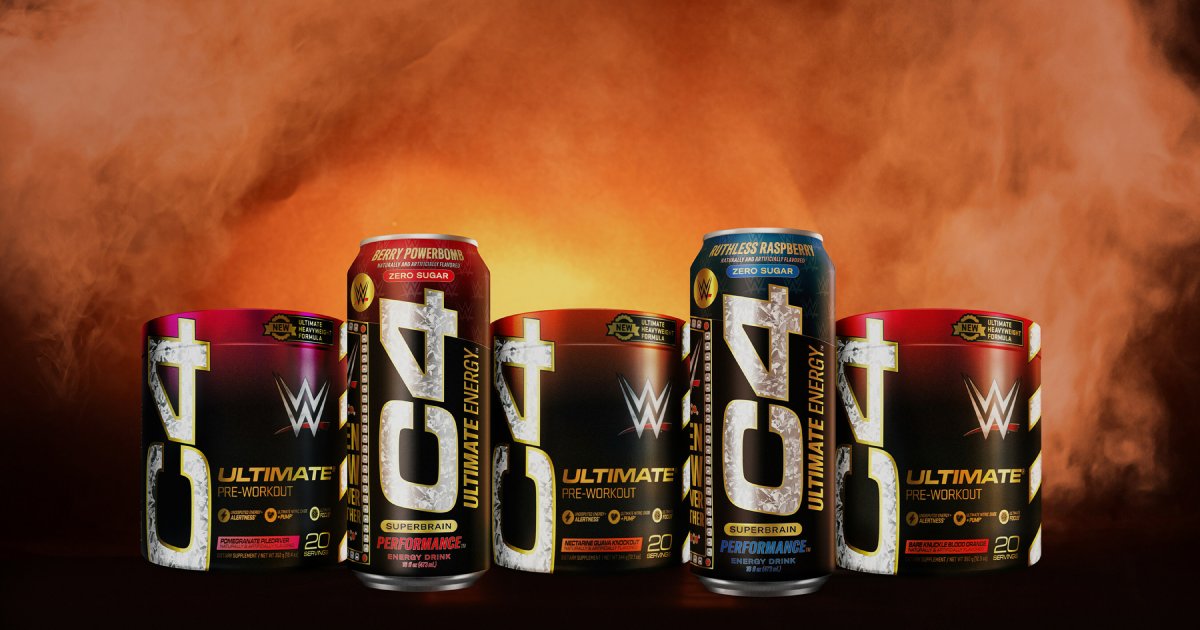Energy Drinks Get a Boost from Licensing

Energy drinks have developed a taste for licensing.
These agreements have largely focused on inbound licensing, rather than on expanding the energy drink brands beyond the beverage aisle.
For example, World Wrestling Entertainment and Nutrabolt, owner of the C4 energy drink label, recently released co-branded products being sold through GNC stores in advance of WWE Summerslam (August 5). And Ghost Energy has developed co-branded Warheads and Sour Patch Kids drinks.
But regardless of the nature of the deal, these partnerships are all focused on gaining a share of the global energy drink market, which was valued at $91.9 billion in 2022 and is forecast to increase to $177 billion by 2030, according to Grandview Research.
That expected growth is underscored by the sizeable investments large beverage companies have made in energy drink suppliers. Keurig Dr. Pepper, for example, paid $863 million late last year for a 30% stake in Nutrabolt. And PepsiCo, which acquired energy drink supplier Rockstar in 2020, also invested $550 million in Celcius In 2022.
There has, however, been ongoing concern about licensing agreements that might make energy drinks more appealing to young consumers. In many cases energy drinks contain 200 milligrams or more of caffeine, which is double the amount recommended for the eight- to 12-year-old children that sometimes consume them. The co-branded WWE-C4 drink, for example, contains 300 milligrams of caffeine. And concern around childhood consumption of energy drinks was back in the news recently when U.S. Sen. Chuck Schumer called out social media star Logan Paul’s Prime energy drink (200 milligrams) and urged the U.S. Food and Drug Administration to investigate caffeine levels in the beverage.
As a result of the controversy that has sometimes surrounded energy drinks, many have been reluctant to forge partnerships in the past. However, the top two U.S. market share leaders, Red Bull (42.5%) and Monster Energy Co. (30.1%), have made some inroads in licensing out their brands. For example, Red Bull—which famously has sponsorship deals with a number of athletes, including the Formula One racing team—moved beyond sponsorship to license its brand to gamer Tyler “Ninja” Blevins for a head band a few years ago. Additionally, Celcius signed a licensing agreement in 2019 with Qifeng Food Technology to manufacture and sell branded products in China, which included a $6.9-million payment for the first five years and volume-based royalties thereafter.
“I think these companies are under so much scrutiny that doing licensing [of their own brand], which is a rounding error (revenue-wise) for many of them, is not worth the risk yet” a licensing executive said.
One strategy to avoid potential controversy, however, has seen licensees develop licensing programs using energy drinks with 100 milligrams of caffeine (the same amount as Coca-Cola). These offerings target specialty chains like Spencer Gifts, Five Below, Hot Topic, and others. Boston America, for example, has licensed more than a dozen brands, including Ted Lasso and anime properties like JoJo’s Bizarre Adventures, Bleach Ichigo Soul Reaper, and Jujutsu Kaisen Itadori.
“We felt the specialty market was where we wanted to live because people are buying these, for the most part, not because they need a shot of caffeine but rather because they have tremendous affinity for the property,” Boston America CEO Matthew Kavet said. “They buy two cans—one that they put on ice and try, and one they never open and it’s a collectible item.”




